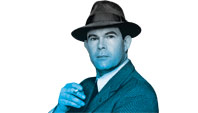
1. Doctor Atomic
The Metropolitan Opera detonated John Adams’s imperfect but moving work set during the vigil before the Trinity test. With periods of hectic waiting and lengths of sublime nothingness, Adams’s score overwhelmed the weaknesses in Peter Sellars’s quilted-together libretto. The real star was the Met orchestra, which under Alan Gilbert sounded like one great inhaling— the upbeat to the nuclear age.
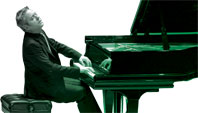
2. Jeremy Denk at Zankel Hall
The pianist ferociously dispatched two monsters in one night: Charles Ives’s Concord Sonata and Beethoven’s “Hammerklavier.” He didn’t gloss over Ives’s crashing non sequiturs or Beethoven’s mad-scientist version of a fugue; he gloried in them. A hyperarticulate musician who writes the blog Think Denk, he played with cinematic clarity, as if both pieces had been just waiting for his touch to render them simple.
3. Jordi Savall & Hespèrion XXI
At the Rose Theater, the Catalan master of the viola da gamba and his ensemble stitched together a soundtrack to Don Quixote from ancient tunes that would have had Cervantes nodding in recognition. Rowdy joy and improvisational exuberance require no translation.
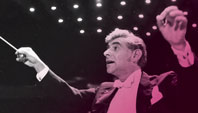
4. Bernstein at 90
A scrimmage of institutions—Carnegie Hall, Lincoln Center, the Phil, City Center, and more—pooled their resources for “Bernstein: The Best of All Possible Worlds.” One especially reverberant moment came during Chichester Psalms, which calls for singing the 23rd Psalm in Hebrew: When 11-year-old Andres Felipe Aristizabal intoned the word “Adonai,” it was impossible to disbelieve those green pastures.
5. Peter Grimes
Anthony Dean Griffey’s performances at the Met rattled around the mind for months, resurfacing at unexpected times, bringing with them terror and sadness. The title character is a stubborn and dangerous man, but Griffey gave him a less monstrous side, intimating that troubled waters run deep.
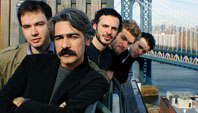
6. Brooklyn Rider at the Brooklyn Lyceum
The borough’s chief string quartet teamed up with the Iranian fiddler Kayhan Kalhor for one of those cross-cultural evenings that might have made no sense at all but instead displayed a loose, magical logic. One of the quartet’s inaugural pair of CDs—titled Passport—captures some but not all of that night’s meandering beauties.
7. The Opening of (Le) Poisson Rouge
In September, the old Village Gate was reincarnated as (Le) Poisson Rouge, just the sort of thinking person’s music club that the new-music scene requires. It’s one of the homes of Wordless Music, a series that pairs indie pop, rock, and folk performers with their classically trained colleagues. Now genre-hoppers have a place to call their own.
8. Alarm Will Sound
The energetic ensemble Alarm Will Sound, conducted by Alan Pierson, doesn’t hop from program to program but develops its shows over months. Its last undertaking culminated in an evening called “a/rhythmia,” where they played an orchestration of a player-piano piece by Conlon Nancarrow— one that couldn’t be performed by human hands.
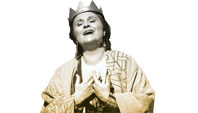
9. Tristan und Isolde
Cold-and-flu season kept Ben Heppner as Tristan and Deborah Voigt as Isolde from singing together until the last performance in the Met’s run. But when the sneezing stopped, that night proved worth the wait. Both singers breathed and phrased in such miraculous sympathy that it almost seemed as if they had prepped together for a joint comeback.
10. YouTube Symphony
Last week, Google announced its entry into the patronage game with global online auditions for an orchestra to play a new work by Tan Dun at Carnegie Hall. (Google posted sheet music and a silent video of Tan conducting; you film an audition and post it on YouTube.) Sure, it’s a gimmick, but it launches a new way for talent to emerge and raises the odds for classical music to go viral.
